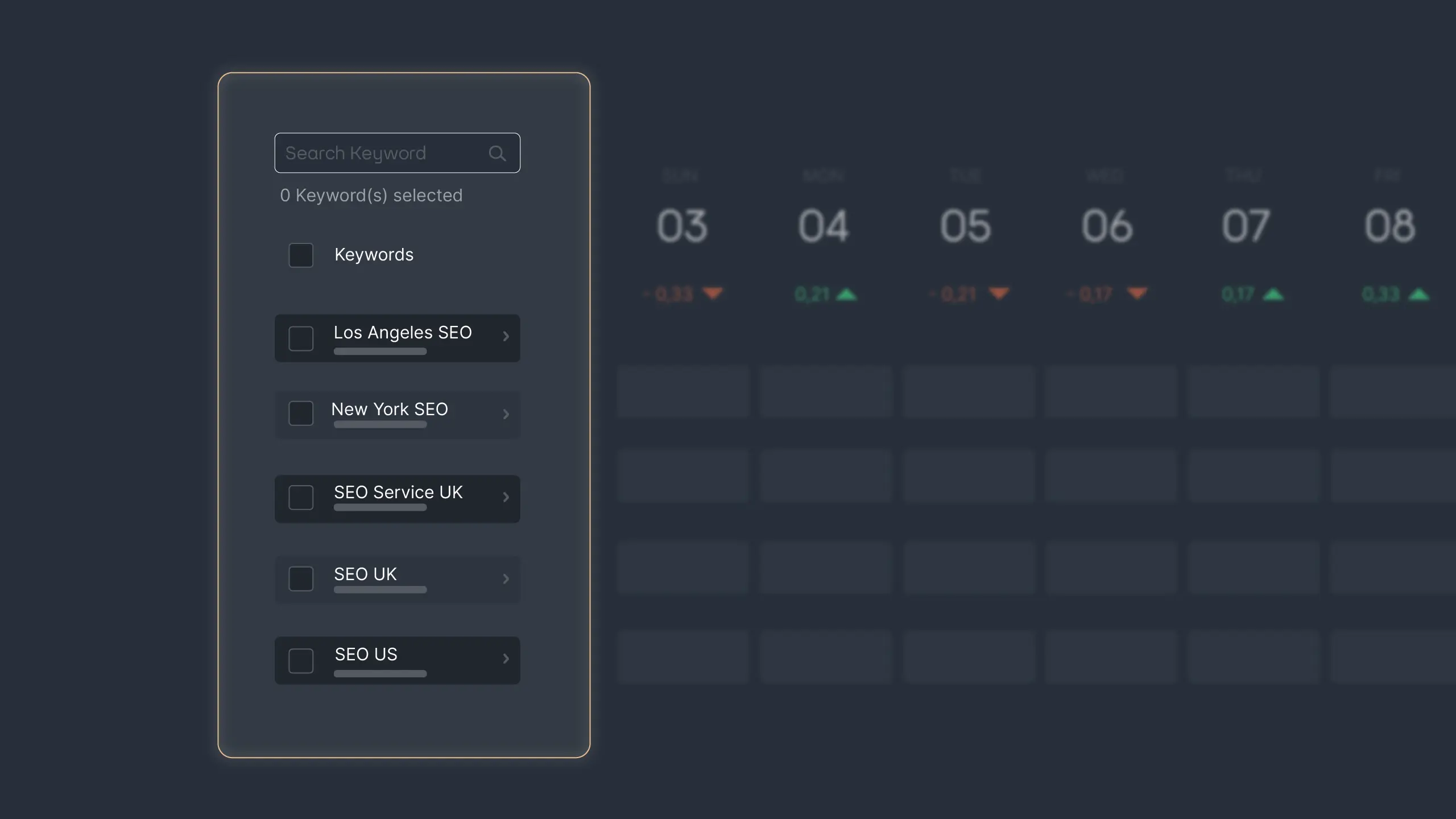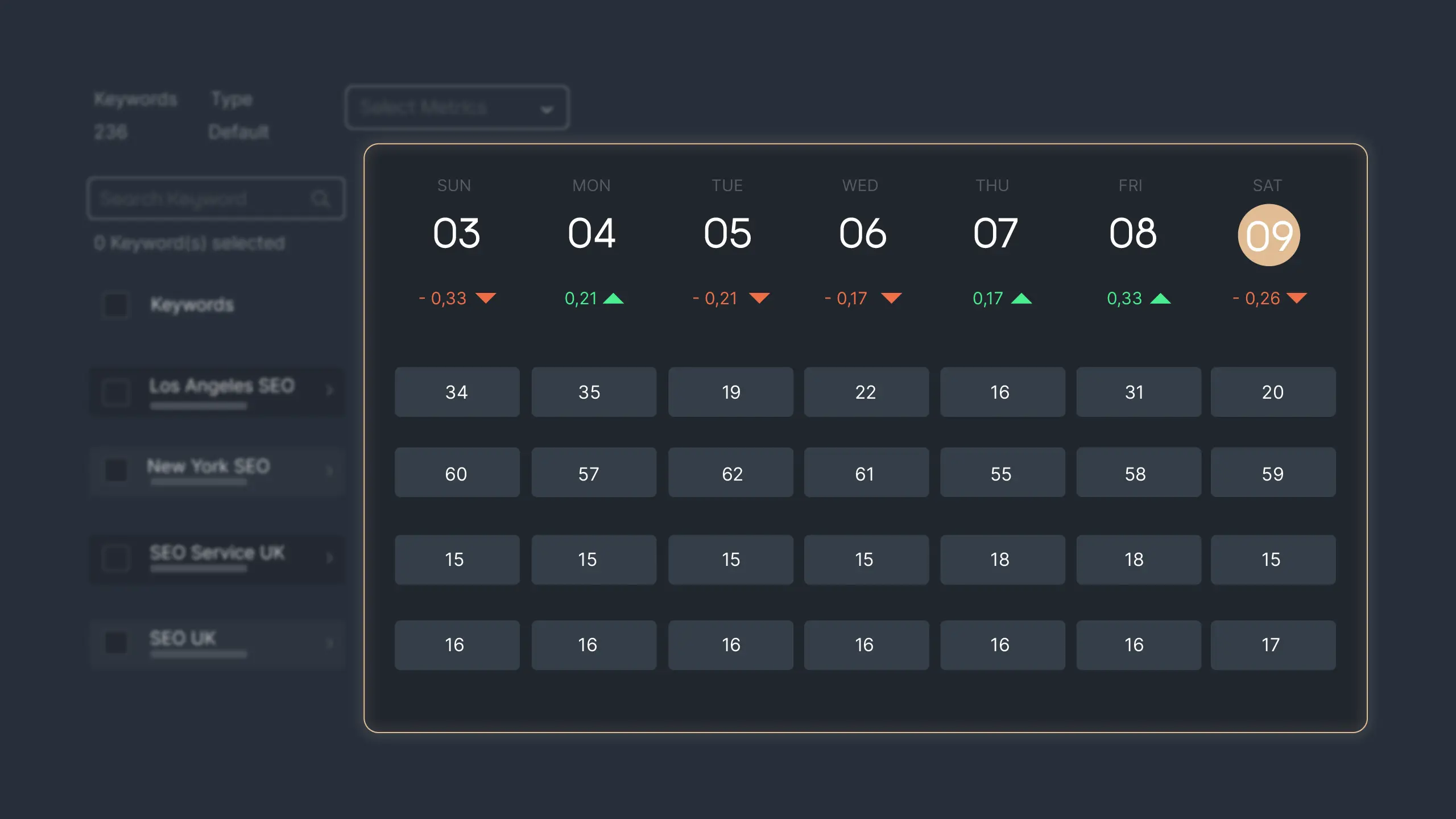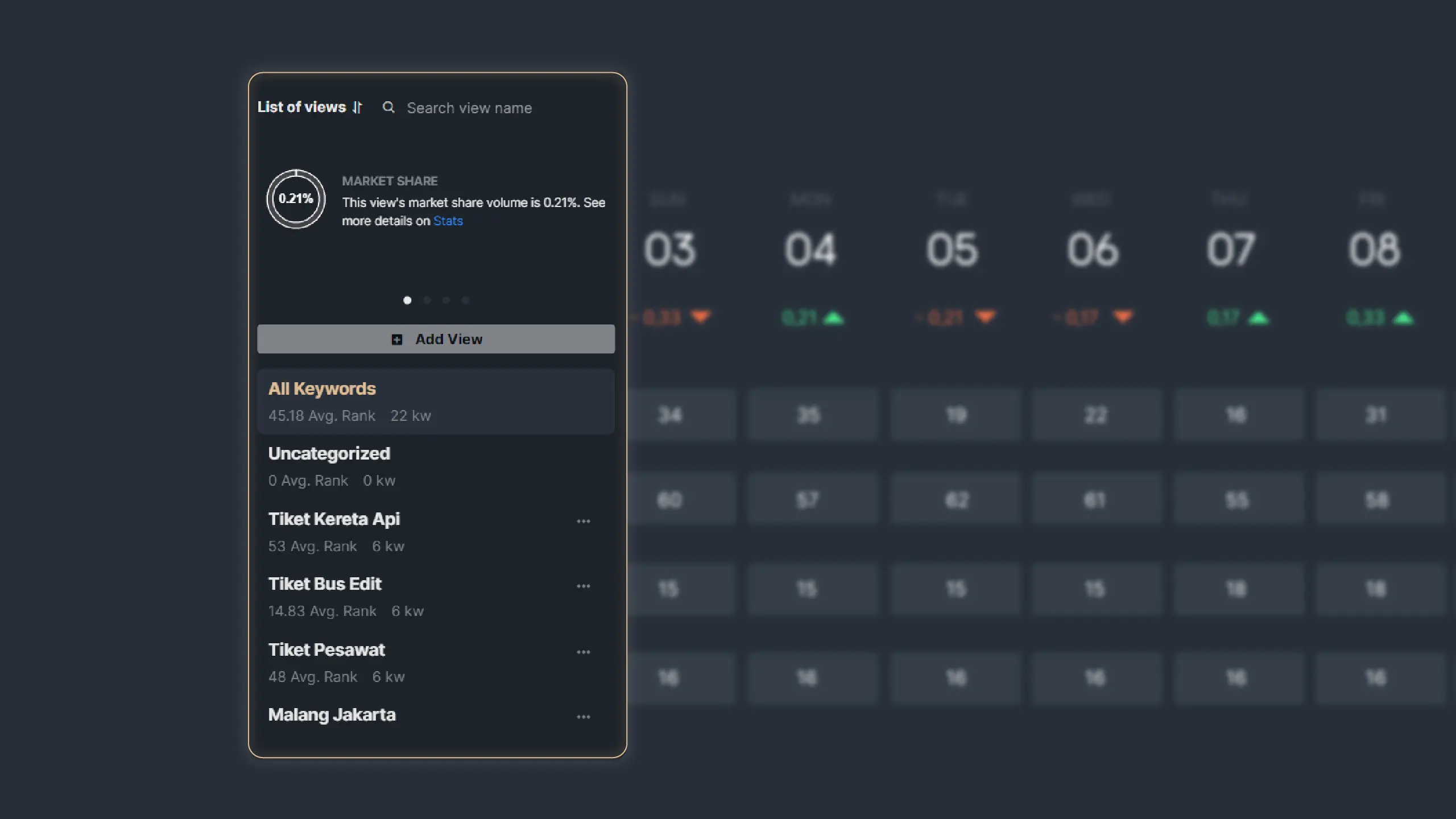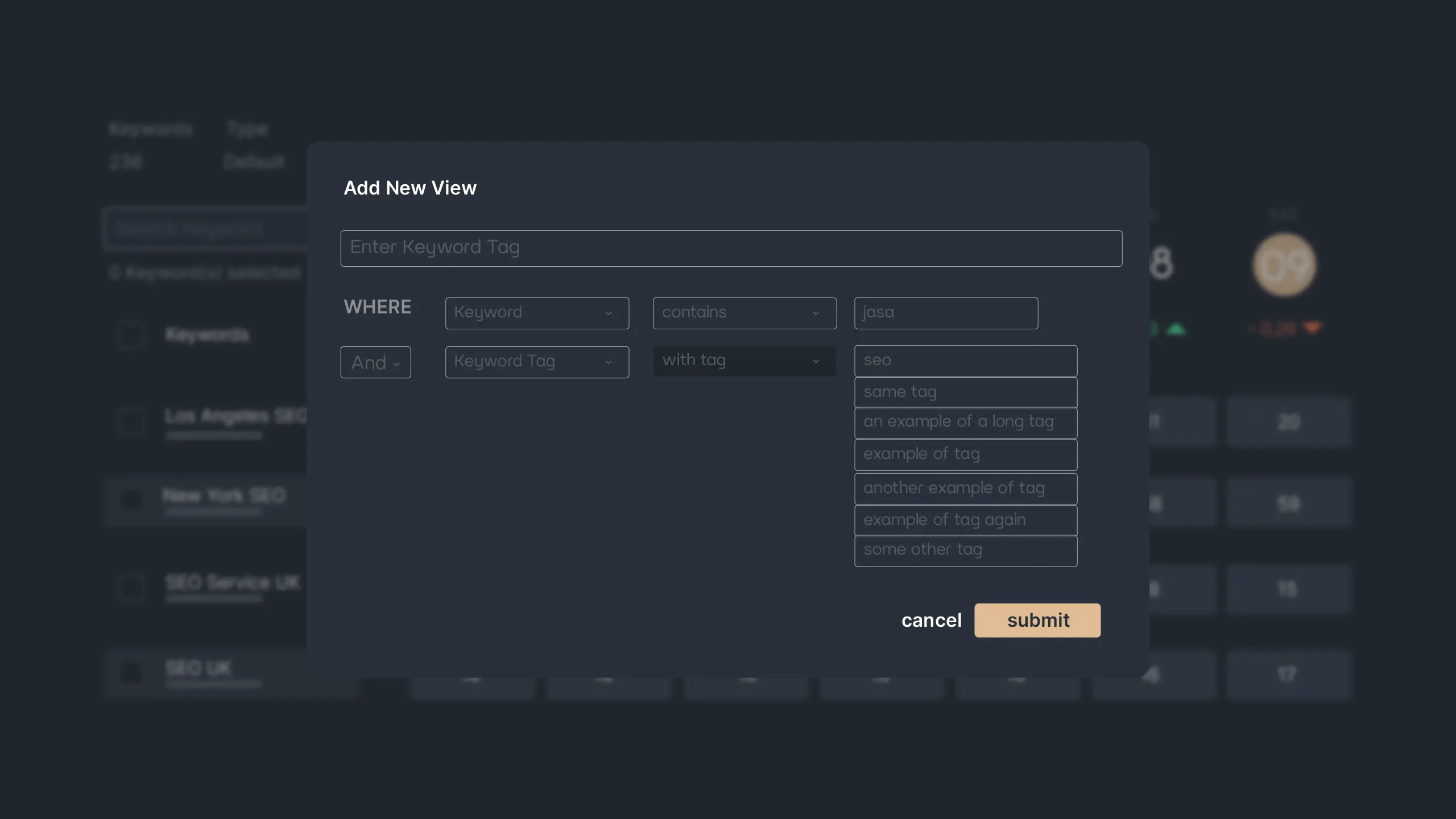Keyword categorization strategy is often used to elevate SEO content and to ease the performance observation within SEO tool. By having more related categories, optimizers can observe their target keywords based on the intent, meaning, or other groups.
Targeting a bulk of keyword ideas can be overwhelming to observe, yet it depends on how you observe it. In this article, we would like to show you the strategy of keyword categorization to ease your keyword observation.
What Is Keyword Categorization?
Keyword categorization, clusterization, classification, or any other terms related are a strategy for grouping SEO keywords into some categories with a certain specification. Whether it is grouped in the same intent, semantic, topic, or other specs.
In the optimization process, an SEO specialist will include keywords in their plan. The keyword is so important in catching more users' queries and inviting them to visit the website. Not a surprise that you might have hundreds or even thousands of targeted keywords on your website.
Since search engines getting smarter in processing users’ queries, you need to adjust your strategy to their way of giving ranking. Using keyword categorization can help websites in elevating the content and make it more relevant to the user's intent. This way, the ranking will be raised.
The Importance of Keyword Categories?
As said earlier, you need to target relevant keywords as many as possible to catch wider queries, otherwise, you will not cover enough areas related to your business. Thus, making some categories for your keywords will help both search engines and users in getting relevant information.
Whether it is a long-tail keyword or the short one, clustering your keyword will improve the chance of a high ranking. You can play a linking strategy to make sure the readers and search engines find more related content on your website.
That way, your content relevance will increase. Sometimes, it is just not enough to target one keyword for a topic. You will need to target multiple, related keywords to optimize it. By creating diverse content on one topic, you will improve content relevance.
Grouping your keywords into categories is also useful in keyword performance observation. You can analyze its performance cumulatively in a more understandable view.
How To Categorize Your Keywords?
After you understand the definition and the importance of keyword categorization, you might wonder how to do it the right way. You can start categorizing your keywords from the actions listed below.
List All Your Targeted Keywords
It is started with listing your keywords, but before that, make sure you have done a bunch of keyword research thoroughly. Then, you can list all your keywords in one space. You can use an SEO tool to list all of them.
In our advice, it will be better if you list the primary keywords you really want to rank for. You can start identifying which keywords you should prioritize and why. In your list, make sure you have enough data about that keyword such as the search volume, keyword difficulty, and other important metrics.
Use SEO tools like a professional, so that you have enough data for all your keywords. You can try Sequence Stats to list all your keywords plus see the performance day by day. It is super easy, input your keywords > set the market option > submit > monitor.

Picture 1: List of keywords in the rank dashboard of Sequence Stats
Group Your Keywords
Once you have listed all your targeted keywords, you will see how some keywords have similarities. Whether it is the intent, the topic, or the semantics it has. That is the potential way to categorize the keywords. Here is some relevance you can consider in grouping your keywords:
Search intent: if some keywords have the same search intent, you can segment them into one group. The intent can be varied, such as transactional, informational, navigational, etcetera.
Semantic relevance: users might use different keywords to search for the same thing. So, you can make a group of keywords based on semantic relevance. As long as the meaning is the same, then it belongs to one group.
Geographic target: it will be useful for a website that targets multiple regions. They can group the keywords based on the region. That way, it will be easier to track the performance of each region.
Search volume: you can group your keyword based on the search volume, and the high search volume should be monitored regularly. If not, you might lose a chance to grab those huge demands. You need to see the ups and downs of those keywords with great search volume and immediately set the working strategy.
If you have any other categories, you can add more groups as needed. The above list is just an example of important categories you should have.
Create and Optimize High-quality Content for Your Keywords
After you manage your keywords into groups, it will give you some insight into what to do next. If you haven't had the page or content for certain keywords you need to rush and create high-quality ones. Make sure you create content that is useful for users. Fill it with enough data and information to increase user experience.
If you have the content, then you need to optimize it. For example, the current content has a good performance, but it is not updated for a while. Then, you need to refresh the information, add something new yet relevant, or change the meta description to catch more attention. So, your content will improve day by day.
After the content creation or optimization, you can track its performance using your favorite SEO tool, such as the Sequence Stats rank tracker. You will receive insightful information about daily ranking.

Picture 2: Daily ranking data changes in Sequence Stats
SEO Tool to Help You Handle Keyword Categorization
Indeed, categorizing your keywords is overwhelming if you do it manually. You need one SEO tool that could accommodate all your SEO needs including keyword categorization. We suggest you look for an SEO tool with keyword categorization features.
Here we introduce you to Sequence’s feature regarding Keyword Categorization.
View Feature
View feature enables you to view the keyword data based on a certain group you set. You can add more keywords to a group with a similar label. Then, you can monitor the performance separately from the all keyword list.

Picture 3: List of Views created in Sequence Stats
Not only eases you into viewing your keyword based on the category, but this feature also gives you insightful information such as the average ranking of those groups, the total search volumes, the top competitors in the groups, and the market share.
That information you can use to do competitive landscape analysis and define the next SEO strategy.
Keyword Tag
You can give a tag or more to your keywords. This is to group the keywords based on the label you gave to them. You can give the tag through keyword metrics in the rank dashboard.

Picture 4: Keyword tag in keyword metrics
If you want to create a View based on the tag, you can set the filter while you create a new View. Here is how.

Picture 5: create a new View based on the tag.
Click Add New View > select the variable (keyword tag) > set the value you want to add. Then, you can preview the keyword list you want to group and submit it. That’s it, a new View based on Keyword Tag is created.
Wrapping Up
Keyword categorization is important in building a working SEO strategy. It is important for raising the ranking and satisfying both search engines and the users who visit the site. Thus, you need to make sure that all your keywords are categorized neatly.
With the help of an SEO tool, you can optimize it and save time from doing it manually. Sequence Stats can help you with that effortlessly. Let the system work for you and you can allocate your time to be more productive.
You can first register to Sequence Stats, or you can explore Sequence Pricing before deciding which plan you should take. The good news, you can have a free trial for a year with a free balance as your exploration. Try Sequence Stats now!